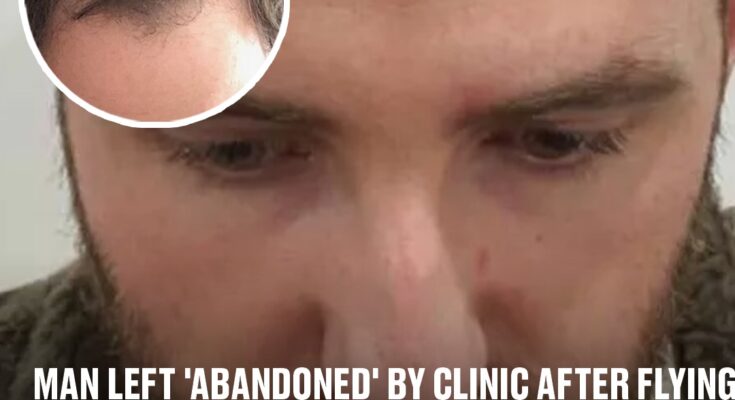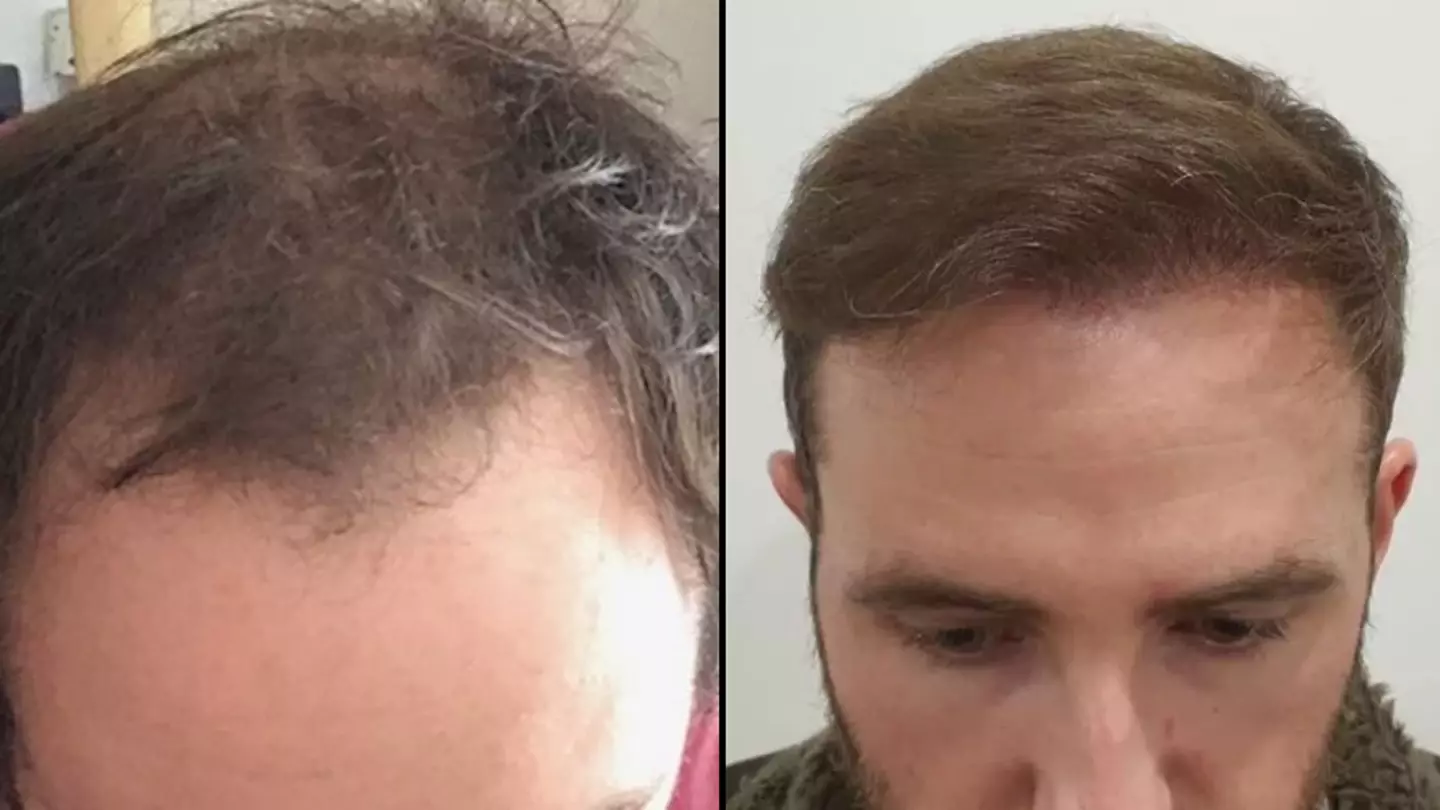
A man says he was left ‘abandoned’ by a Turkey clinic after being tempted by the cheap prices for a hair transplant.
Tom Brett had been suffering from hair loss since the age of 20 and had been searching for a procedure in the hope it would restore his confidence. But unfortunately, it only ended up making things worse.
“Losing my hair was affecting my confidence big time,” he admits. “I needed to do something.”
So, the NHS worker sought out a quick fix and found that the prices were a fraction of what he’d pay in the UK.
He spotted an ad online for the clinic and it seemed like the answer to all of his problems.
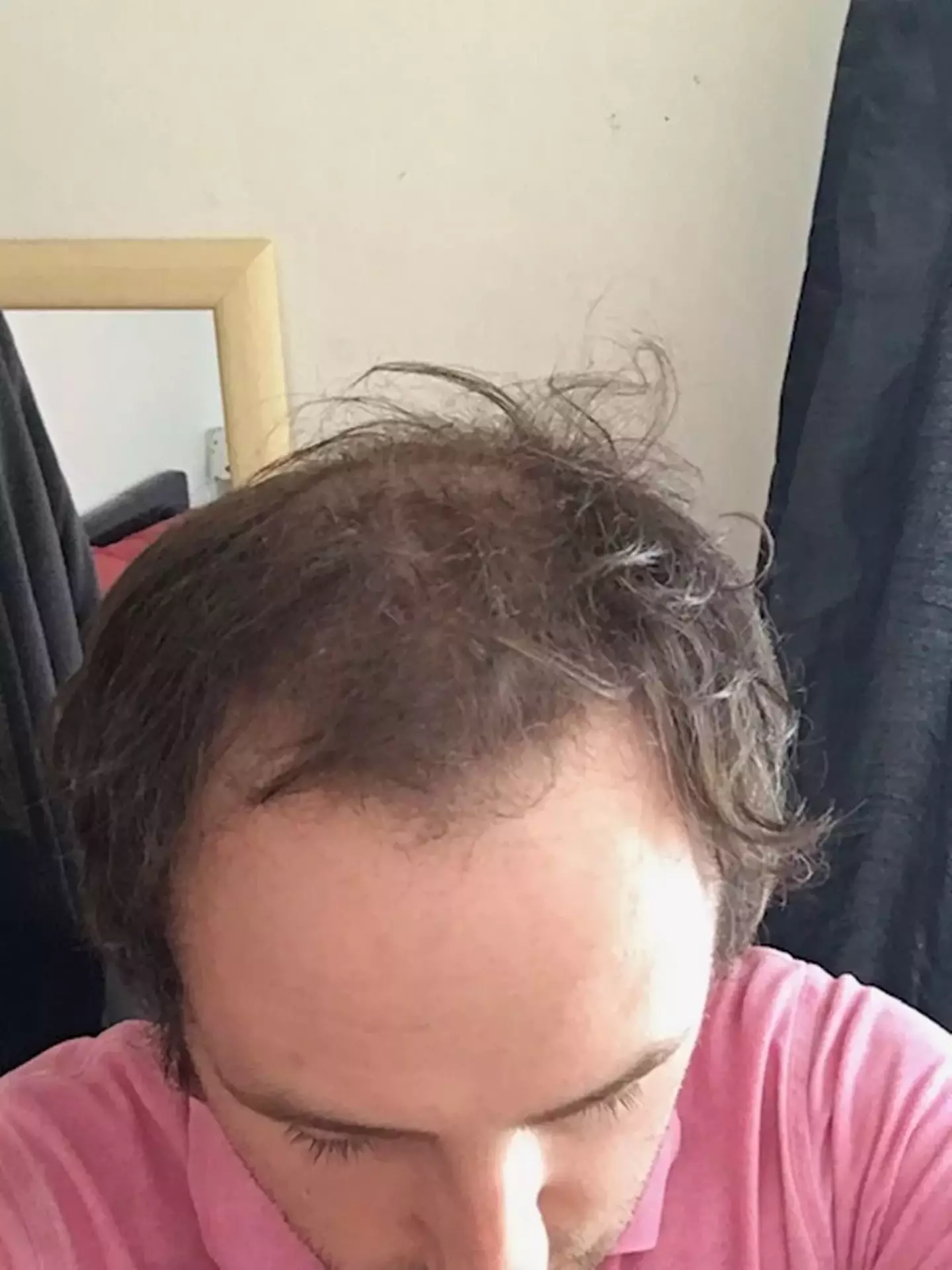
His hair ended up worse after the visit to Turkey. (Tom Brett/Cover Images)
The Portsmouth man said: “I thought I was getting a great deal. It sounded professional, the price was unbelievable, and I was promised great results.”
Having flown to Istanbul for his big transformation, he arrived at the clinic feeling nervous but hopeful as a surgeon greeted him and explained the procedure.
However, when the operation started, things quickly turned bizarre.
“Out of nowhere, the surgeon handed the entire procedure over to an assistant,” Brett said. “I didn’t see the surgeon again after that. I was in shock. The assistant took over, and I didn’t feel confident about the whole thing.”
Despite the red flags, he was too nervous to turn back.
And three months after the surgery, he started to experience the horrifying results as instead of thick regrowth, his hair started falling out in patches.
“It was worse than before. I was gutted,” he added.
When Brett reached out to the clinic for answers they just ‘ignored him’ and left him feeling ‘completely abandoned’.
With his hair falling out in clumps, the man’s confidence was at an all-time low.
“It was soul-crushing. I couldn’t look at myself in the mirror anymore,” he said. “I had trusted them with my appearance, and it had ruined me. I needed help.”
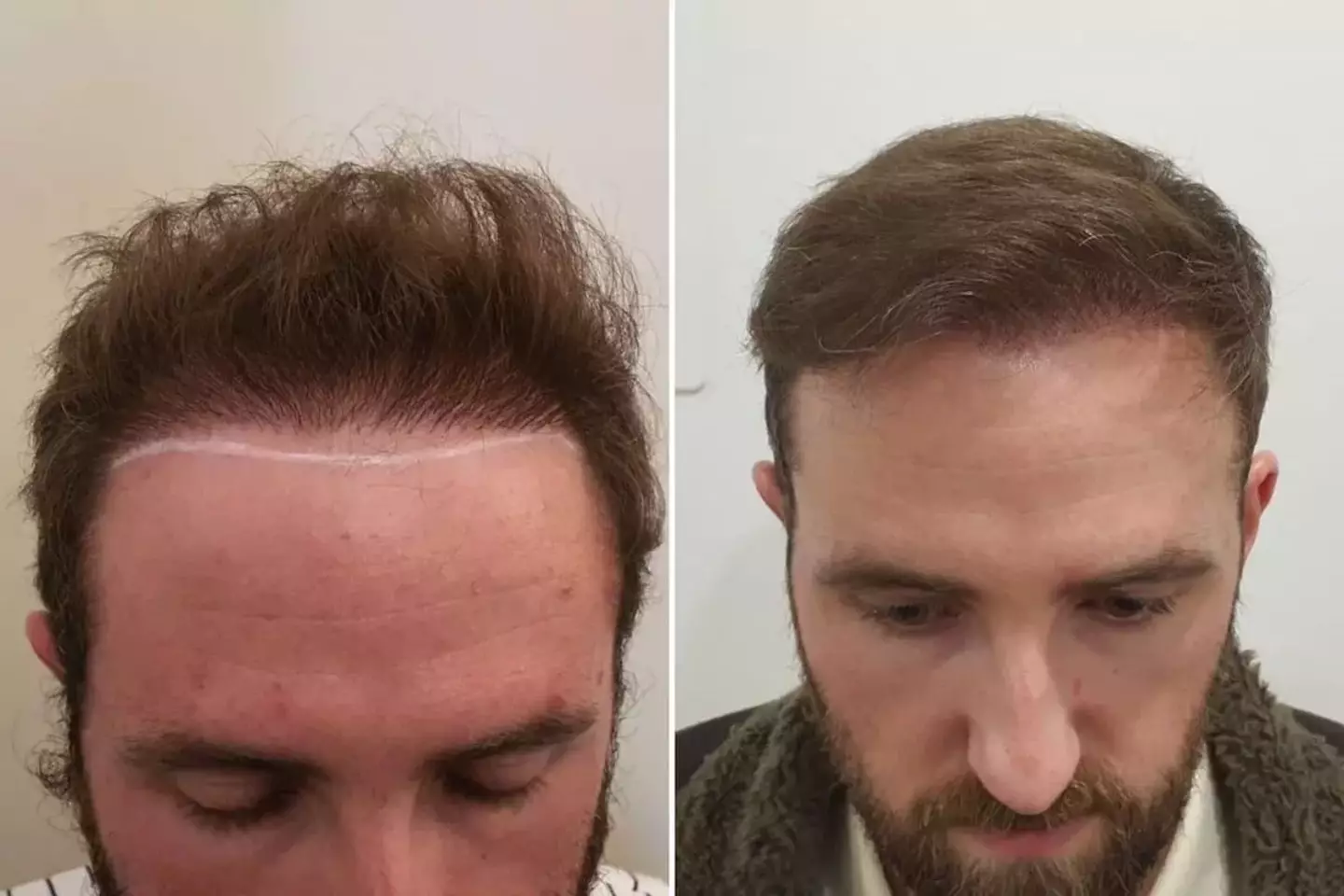
The UK doctor fixed the damage. (Cover Images)
Brett then began reaching out to the media as he wanted to warn others about the potential dangers, meaning Dr. Roshan Vara, a leading UK hair transplant expert, saw his story and offered to fix the damage.
“Meeting Dr. Vara was like a breath of fresh air,” Brett recalled. “He was professional, caring, and there for me every step of the way. He stayed with me throughout the whole procedure, making sure I was comfortable. It was completely different from my experience in Turkey.”
The doctor worked tirelessly to repair the damage, with Brett’s hair growing back within months.
‘Finally happy’ with his appearance, the bloke has learned a hard lesson from this experience.
“There’s a reason the clinics are so cheap,” he warned. “I got what I paid for—and it was a nightmare. If I’d known the risks, I never would have gone to Turkey.”
Brett added to others who may be considering a similar path: “Do your research. Don’t be lured by low prices. A cheap transplant can end up costing you more than you think – emotionally, physically, and financially.”
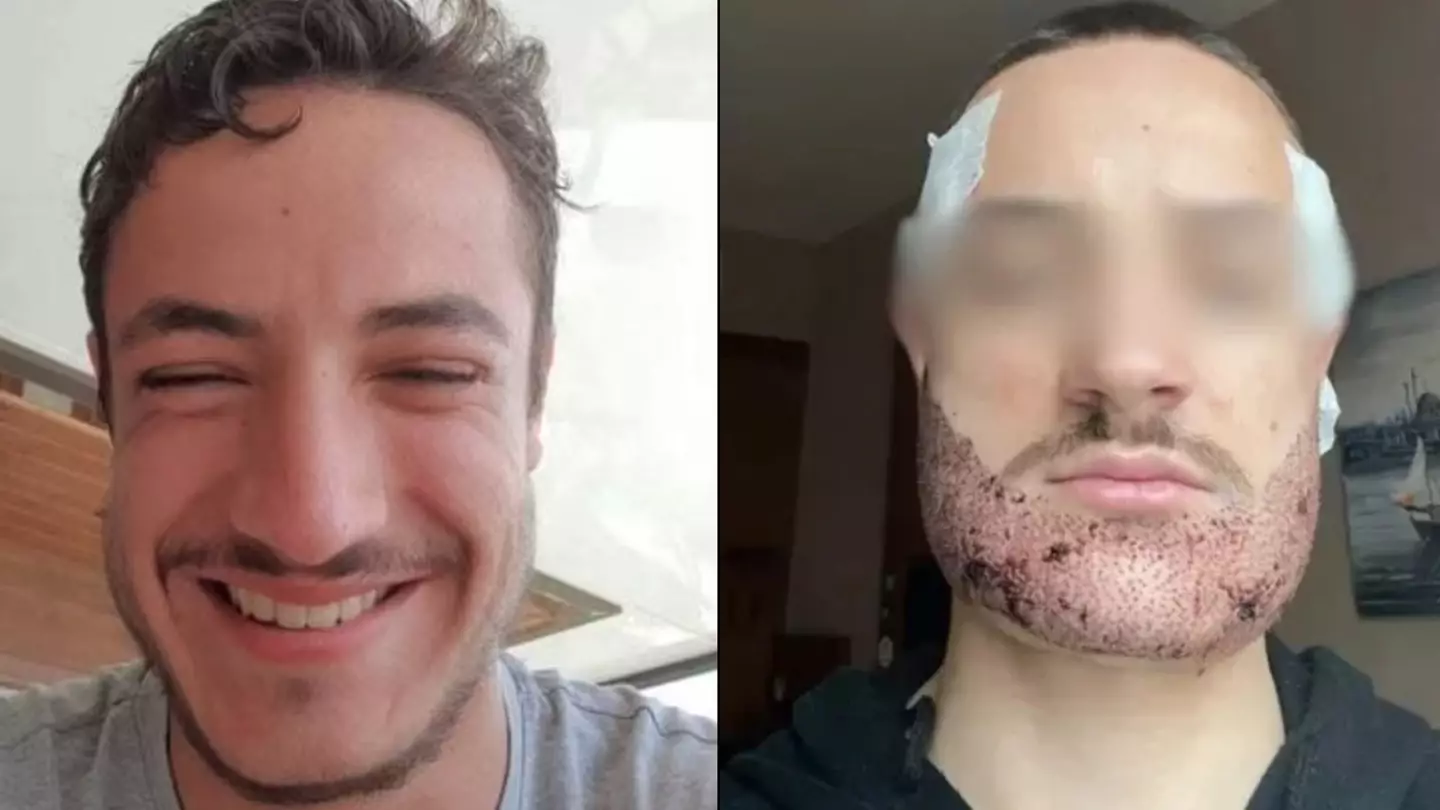
A young French student took his own life following a beard transplant gone wrong during a trip to Turkey, his father said.
Mathieu Vigier Latour was just 24 when he travelled to a specialist clinic in the Turkish city of Istanbul in March this year, where the price of a beard transplant was a fraction of what it would have cost back in France.
The student, who was studying at a business school, went ahead with the €1,300 (£1,082) procedure after he was told the clinic he was at had been approved by the Turkish health ministry, according to his father, Jacques Vigier Latour.
He told french media that the procedure went horribly wrong, with the original plan of removing 4,000 grafts from the back of Mathieu’s head and moving them to his face not being fulfilled.
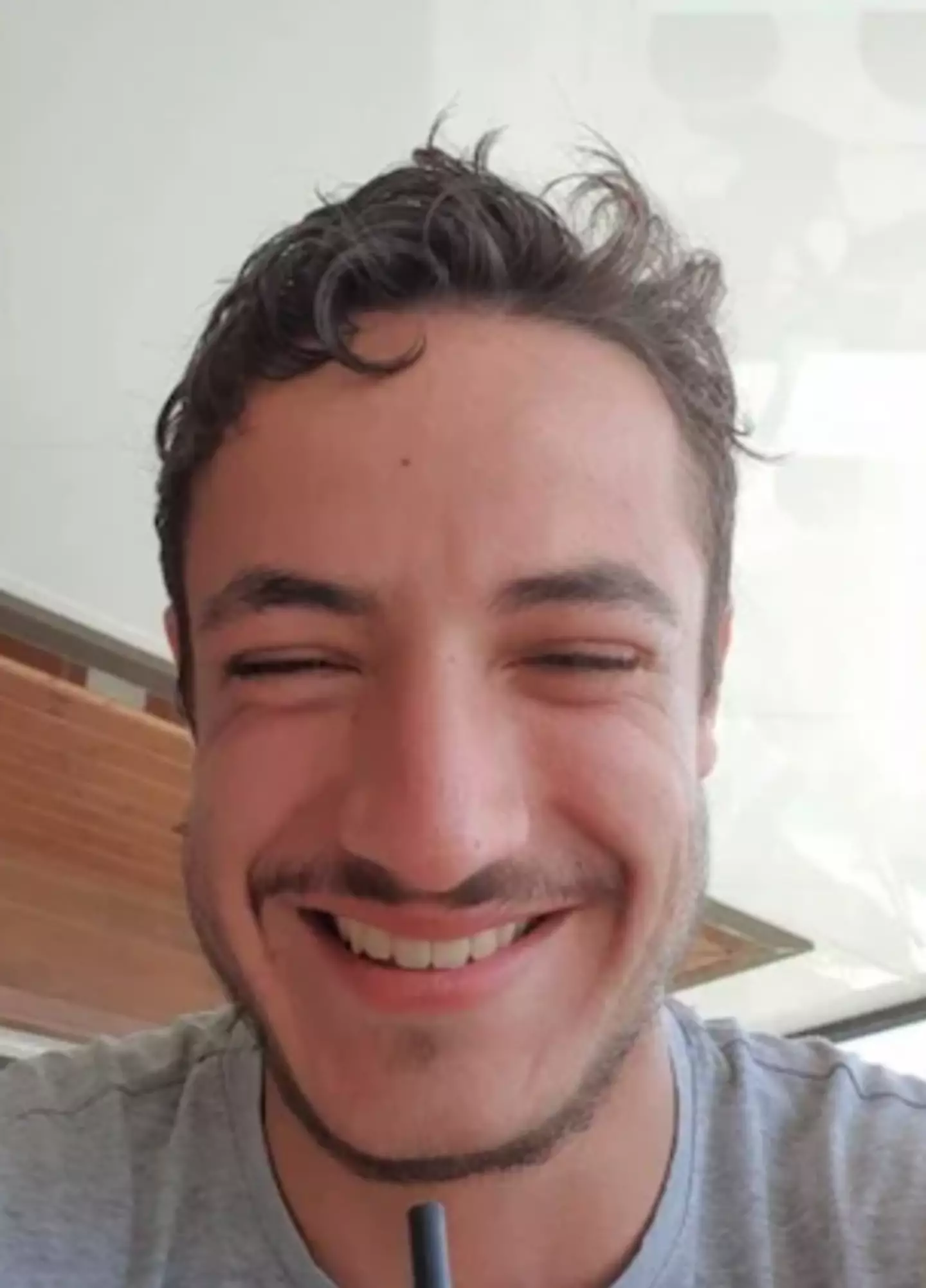
Mathieu Vigier Latour went to Istanbul with the intention of getting a beard transplant (Family Handout)
Instead, it was reported via the Telegraph that the clinician lost 1,000 of the grafts, as Jacques explained to local broadcaster BFM TV: “When it started to grow out, it looked like a hedgehog, it was unmanageable,
“He was suffering, he wasn’t doing well. He was in pain, suffered from burns, and he couldn’t sleep,” he added, explaining that the beard looked unnatural and poorly shaped, with hairs ending up growing at an unnatural angle from his face.
According to his father, the student looked into the surgery more and claimed that the person who did it was not even a surgeon, but an estate agent.
Luckily, his family found a specialist in Belgium that was part of the way through of correcting the botched procedure, but the medical specialist sadly came to the conclusion that the part of his scalp where grafts were removed could not ever recover.
Mathieu did not react well to this news, as he was said to have fallen into a deep post-traumatic shock after being told, and would suffer from severe body dysmorphic disorder.
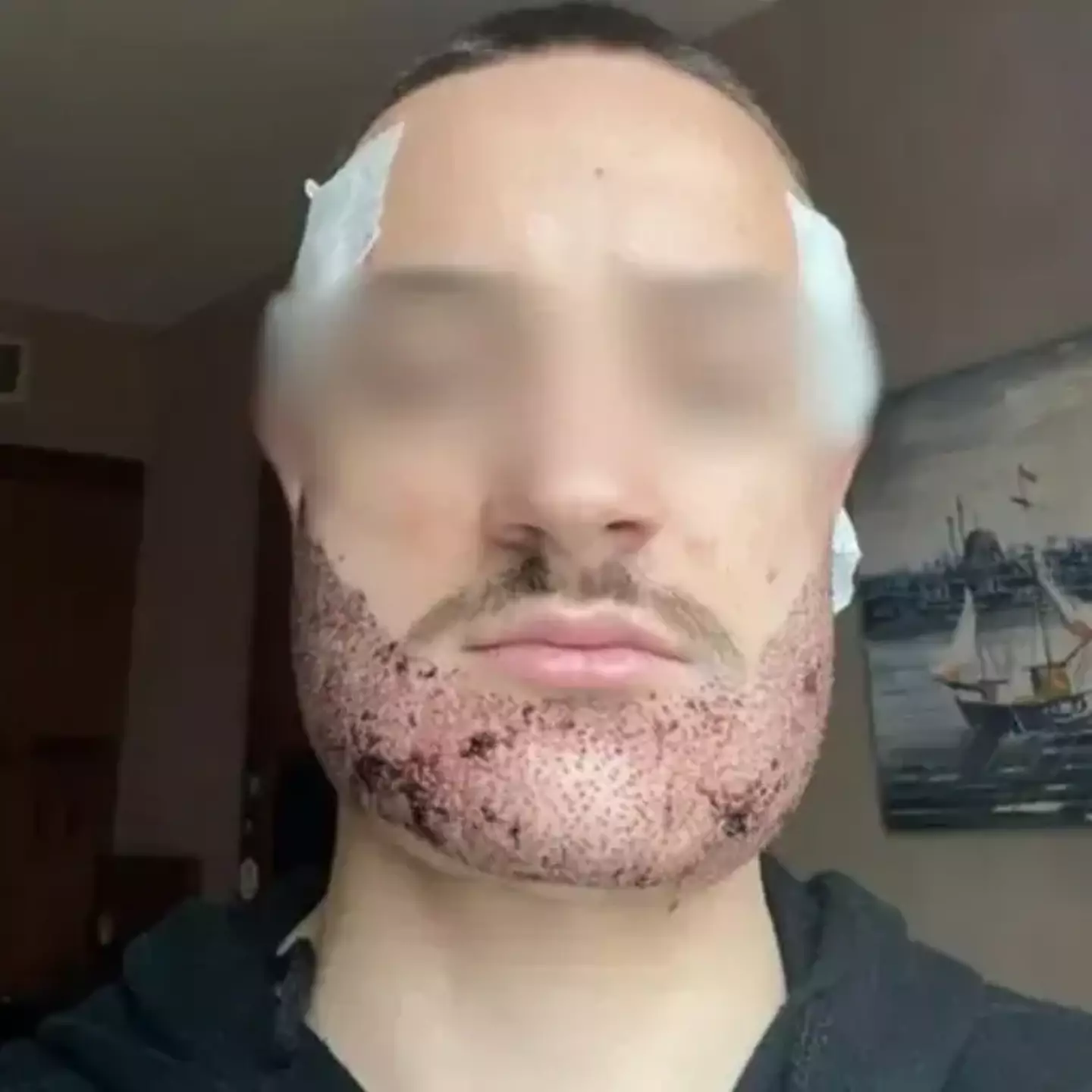
Mathieu suffered from body dysmorphia after being told that some of the operation was irreversible (Family Handout)
His father then added that his son had ‘entered a vicious circle’ and felt trapped, noting that he ‘couldn’t get out’.
Unfortunately, just three months after the first operation in Turkey, Mathieu took his own life at his student accommodation in Paris.
Jacques hopes that speaking out about his son’s situation and death will raise awareness and expose the dangers around low-cost medical tourism.
Jacques concluded: “If this testimony could prevent this from happening again and alert everyone, I think that would be a tribute to Mathieu.”
If you’ve been affected by any of these issues and want to speak to someone in confidence, please don’t suffer alone. Call Samaritans for free on their anonymous 24-hour phone line on 116 123.
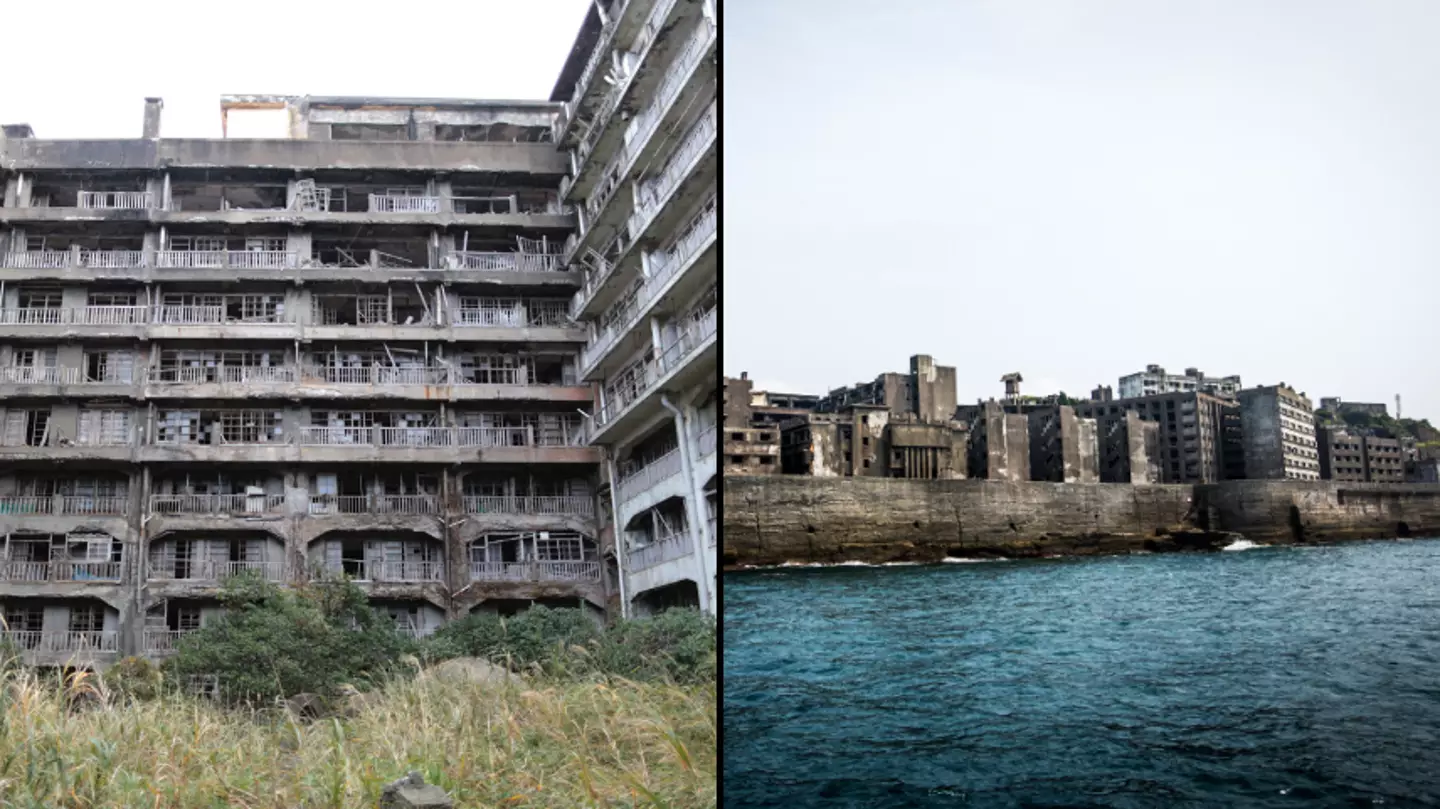
An island established in the 1800s has a very dark past.
Hashima Island is only 16-acres and sits just off the coast of the Japanese city of Nagasaki.
The island – sometimes referred to as Battleship Island – is known for its undersea coal mines which were largely operated during the industrialisation of Japan.
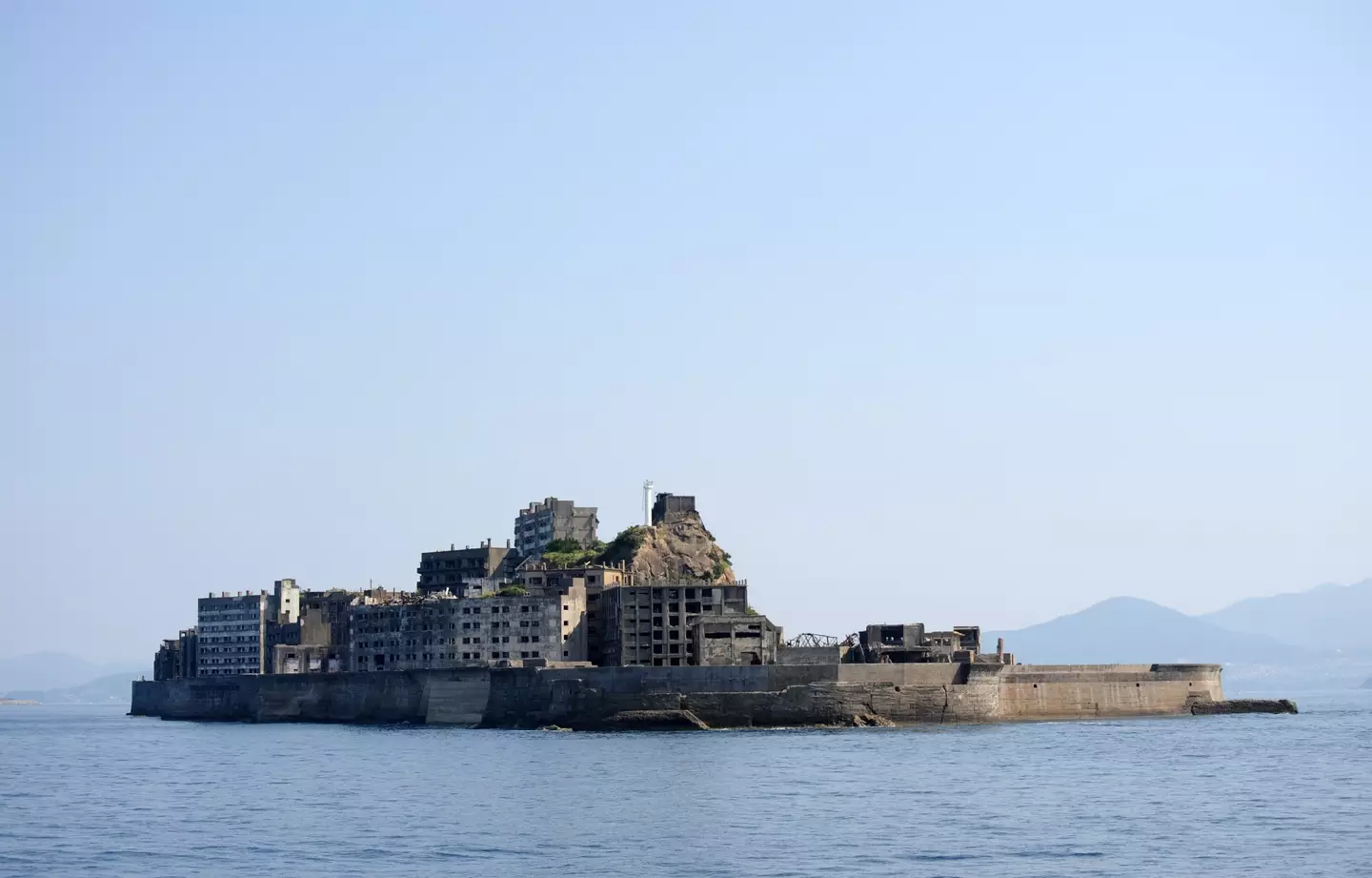
Hashima Island is around 10 miles off the Nagasaki coast (Masashi Hara/Getty Images)
At its peak in 1959, it’s believed that over 5,200 people lived on the tiny island – many of whom were conscripted Korean civilians and Chinese prisoners of war.
In 1930 until the end of World War II, these prisoners were reportedly forced to under extremely harsh conditions and weren’t paid for their labour.
The Mitsubishi Group bought the coal mines in 1890 to provide fuel for the country’s growing shipbuilding industry, and went on to construct apartments, a school, a hospital, a theatre and other facilities for miners and their families.
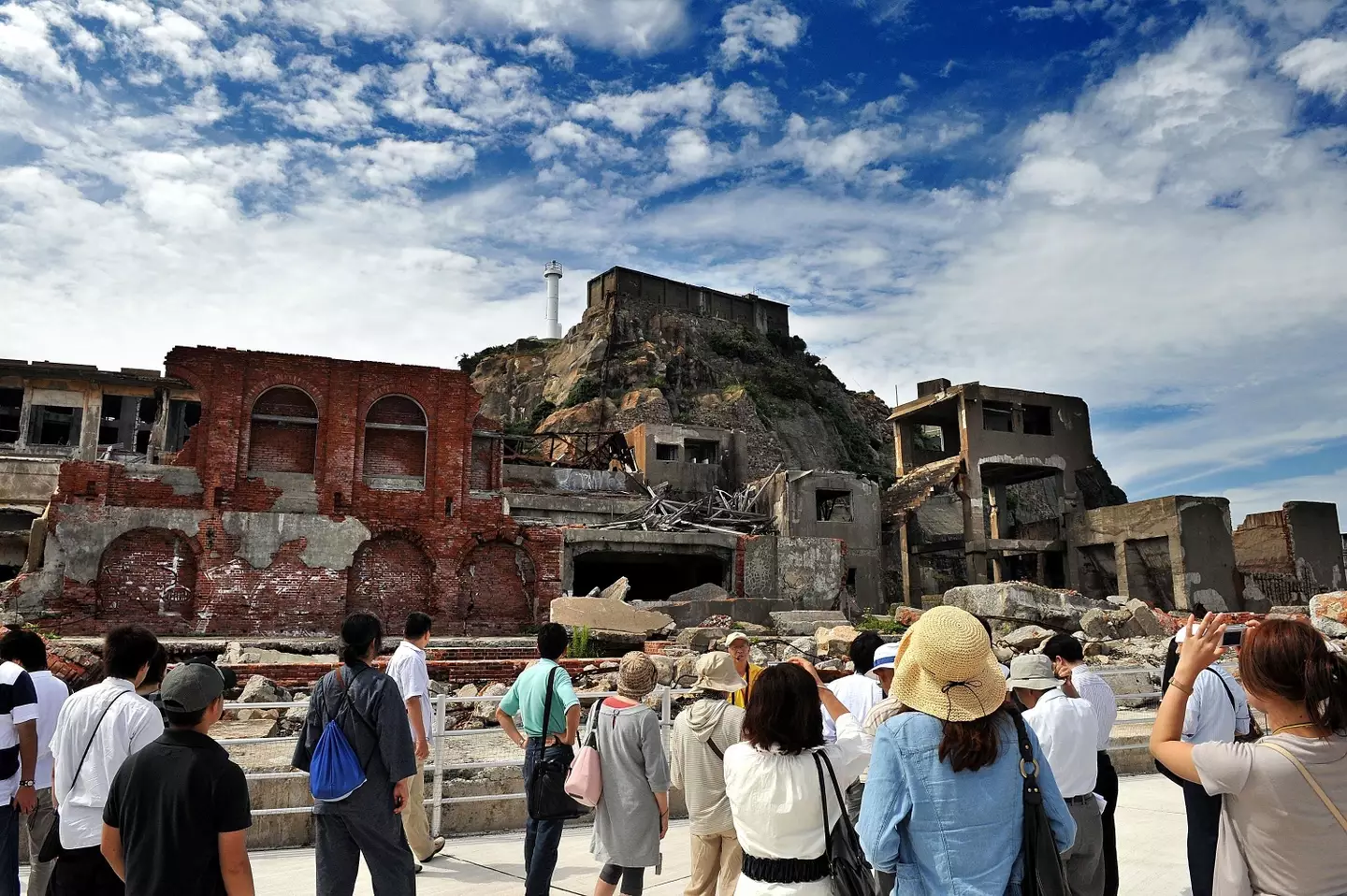
Tourists now flock to Japan to visit the derelict island (Sankei/Getty Images)
But this didn’t change the fact that the miners were made to travel 3,000 feet below sea level in over 37°C temperatures each day, as per Business Insider.
With the gruelling working conditions in mind, its said that 1,300 workers tragically died from starvation, exhaustion and malnutrition.
Severe respiratory sickness was also a common killer on the island as a result of the sea air mixed with the fumes that came from the mines.
Eventually the coal on Hashima Island ran dry, sparking its closure in 1974.
50 years on, is stands uninhabited and filled with derelict buildings just 10 miles off Nagasaki’s coast.
Those who survived working at Hashima often refer to it as ‘hell island’.
Tomoji Kobata worked on the island for a year when he was 24 years old, and has since spoken of the ‘backbreaking work’ he and his fellow miners had to do.
Describing his role as ‘one of the moles’, Tomoji told The Guardian in 2015: “I mined coal and then helped break it up so that it could be taken off the island. It was backbreaking work, so I spent all of my free time sleeping.”
While Tomoji voluntarily went on the island, Choi Jang-seop was one of the Korean miners who faced forced labour. He compared his time on the Hashima as being like prison.
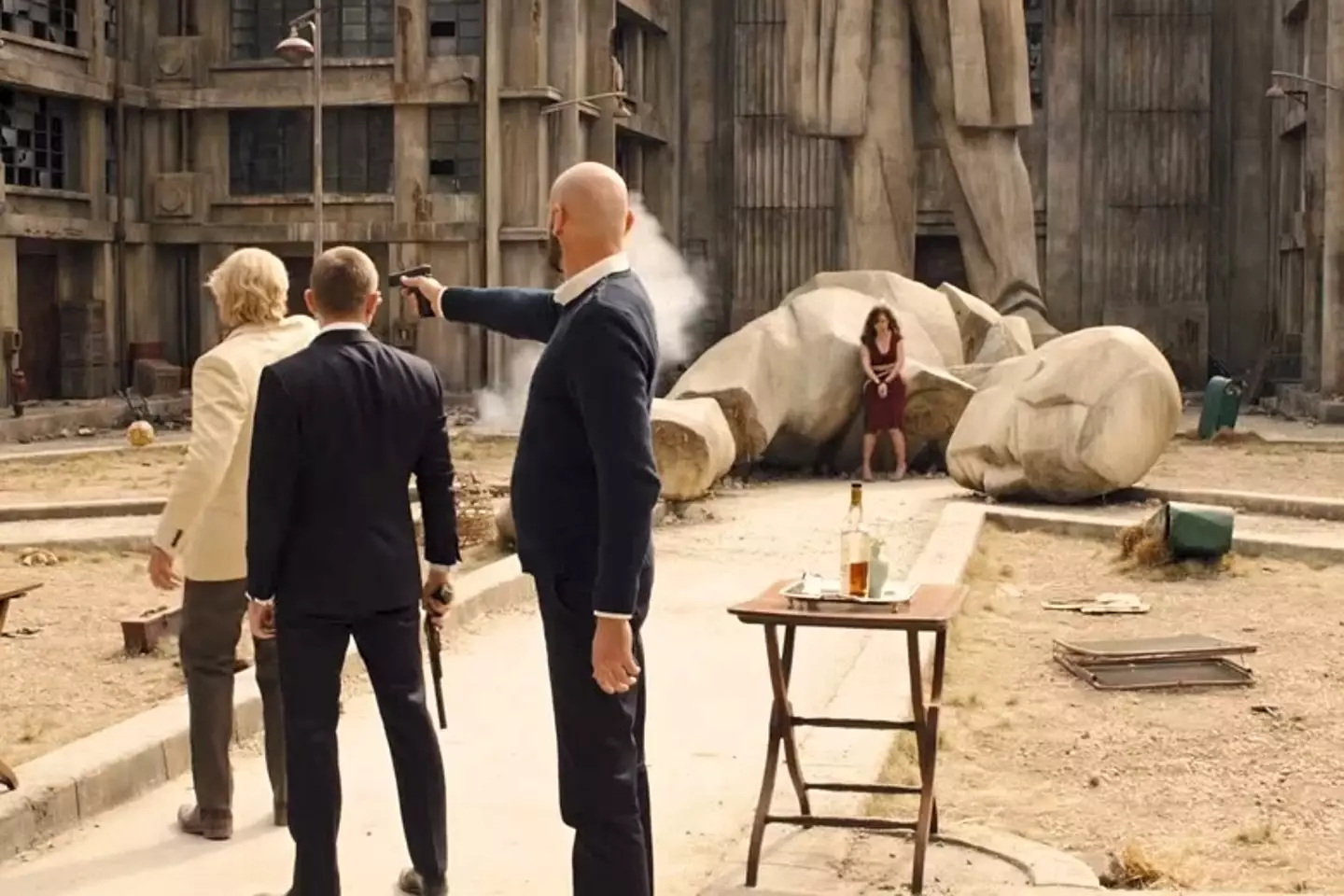
Skyfall was famously filmed on Hashima Island (Sony Pictures Releasing)
“I virtually lived a prison life on Hashima,” he previously told the Yonhap News Agency.
“I feel horrendous and heavy whenever I recall the time when I worked at the bottom of coal mines while only wearing my underwear.”
The island reopened to the public in 2009 and has become a globally known attraction.
Several companies now offer tours around Hashima, where scenes from the James Bond movie Skyfall were filmed.
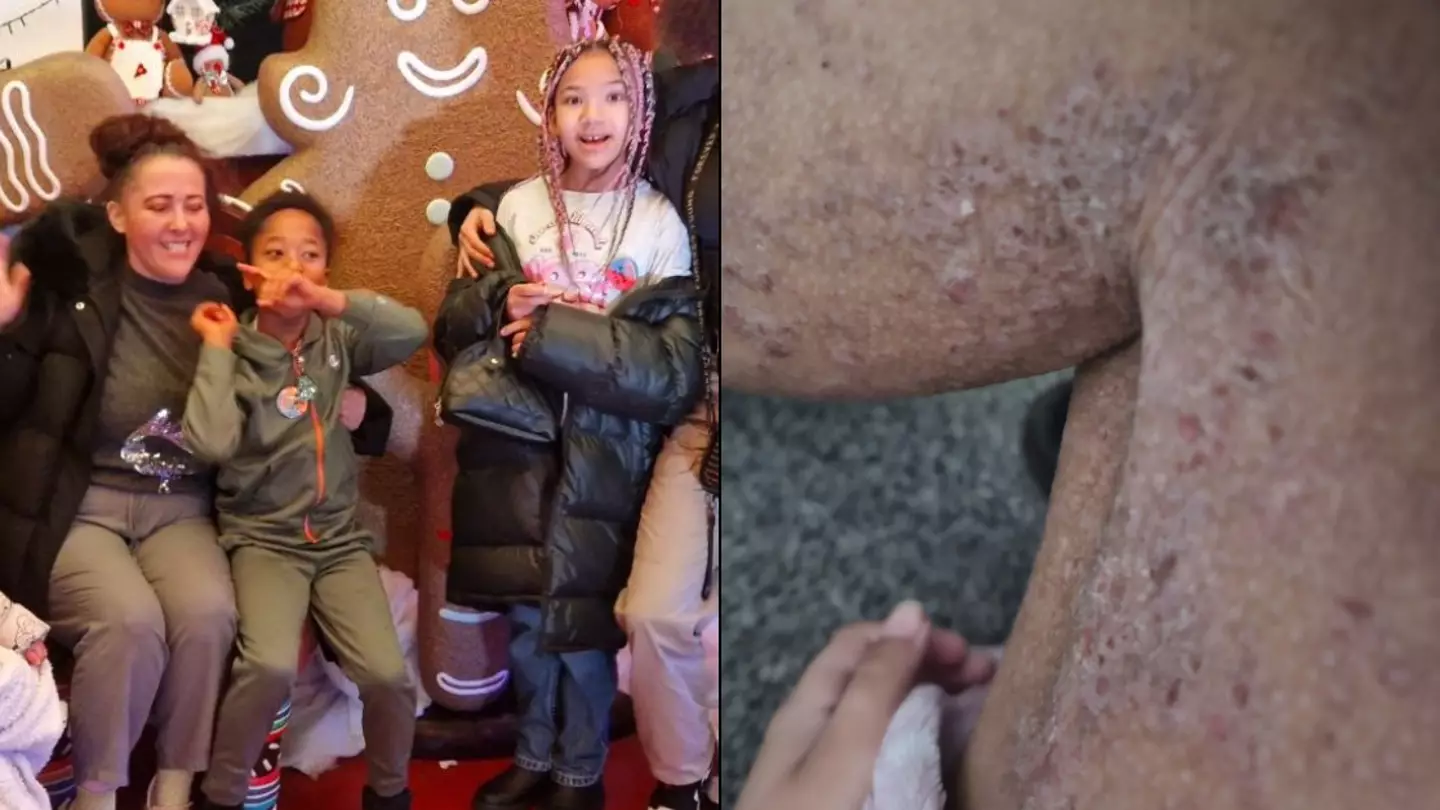
A British mum has issued a warning as her daughter has been left needing a wheelchair after playing with slime.
Nine-year-old M’Layah Chapman was playing with the sticky sensory toy with her friend over the summer of 2023 when small spots started to appear on her skin.
These soon turned into bumps, before becoming blisters which would seep and be infected.
Her mum, Katherine, ended up taking her to a GP before she ended up in a wheelchair and spending time on a hospital ward due to her infection getting so severe.
M’Layah had suffered with eczema since she was a baby but after playing with slime, it worsened drastically.
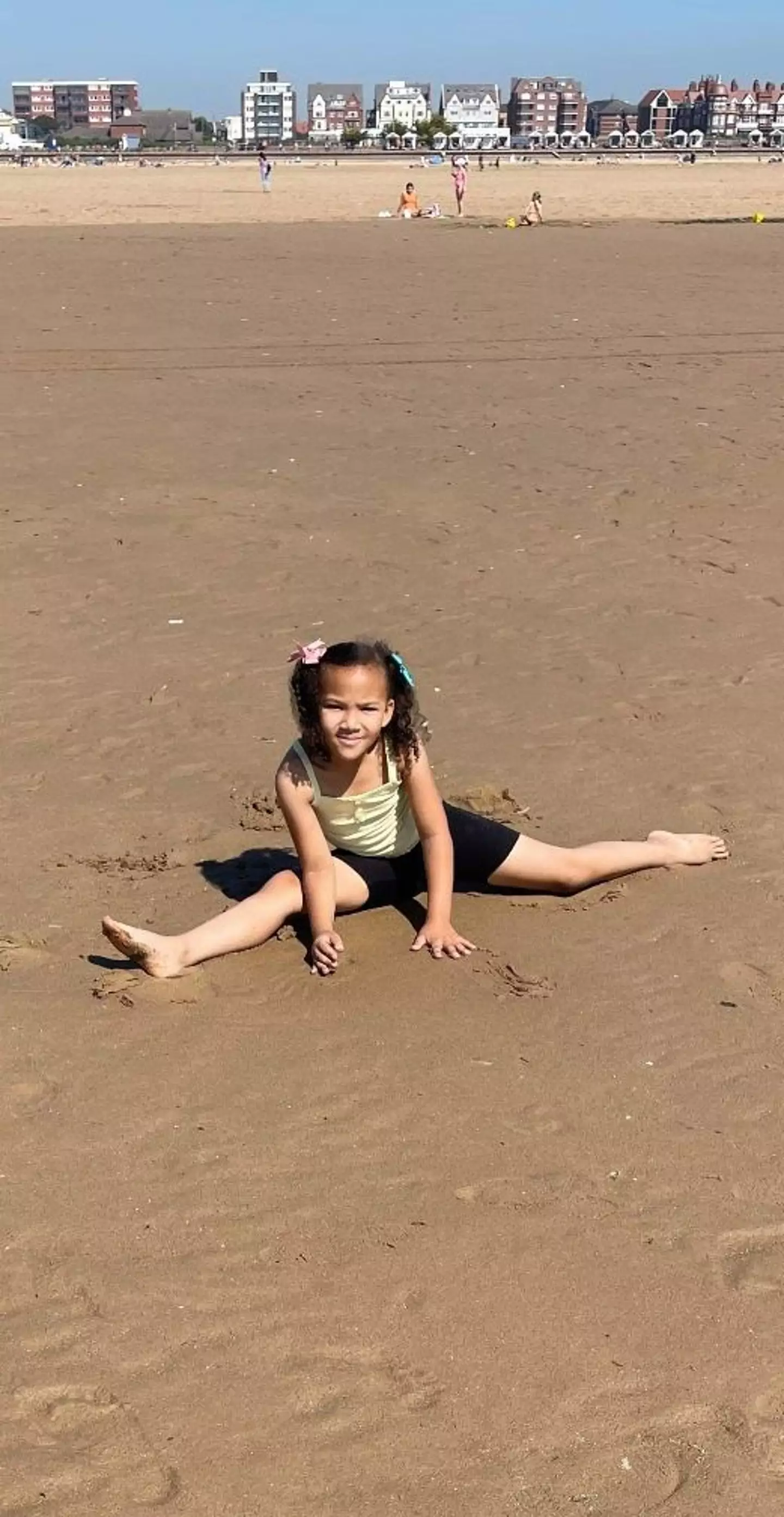
Nowadays the family ‘rarely’ go out. (MEN Media)
Eczema is a very common, non-contagious, dry skin condition affecting one in five babies and children in the UK, according to Allergy UK.
“Since she played with the slime, everything has been bad,” Katherine told the Manchester Evening News. “Her body got infected, and her eczema flared up to the point where she couldn’t walk.
“Her skin flared up and cracked on her legs. She couldn’t put them straight and they stayed bent for a while. They were very sore and all tender down the back.”
M’Layah has had various treatments and creams but continues to struggle with the extreme flare-up with the pain impacting her ‘every single day’.
The youngster, from Fallowfield, Manchester, now can’t do many of the things other children do and the family ‘rarely’ go out.
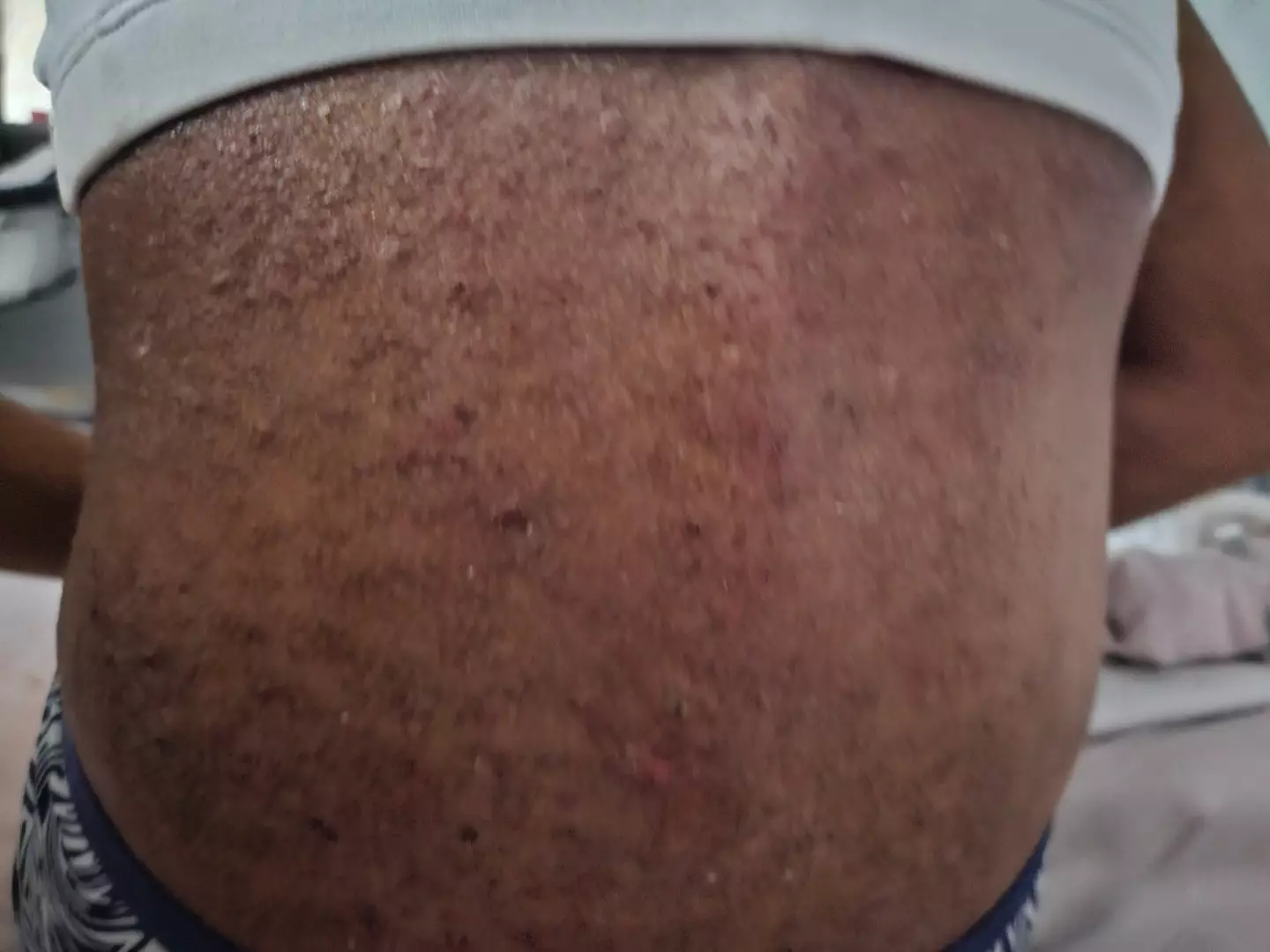
M’Layah doesn’t go to school because it’s so bad. (MEN Media)
“We’ve become prisoners in our own home because of her eczema,” the mum added.
M’Layah’s struggles with eczema and allergies had started when she was just six-months-old, with it being found she is allergic to oranges, soya, citrus, milk, nuts, wheat, dust mites and trees.
It’s never been proven the slime caused the child’s severe flare-up, but Katherine believes it may have been the reason.
“It’s [the eczema] out of my control,” Katherine added. “I can get support with medication, but the eczema flares up when it feels like it wants to. As an adult, I wouldn’t want to go through this.
“She’s off school because it weeps and it’s everywhere – you can see the scratch marks.”
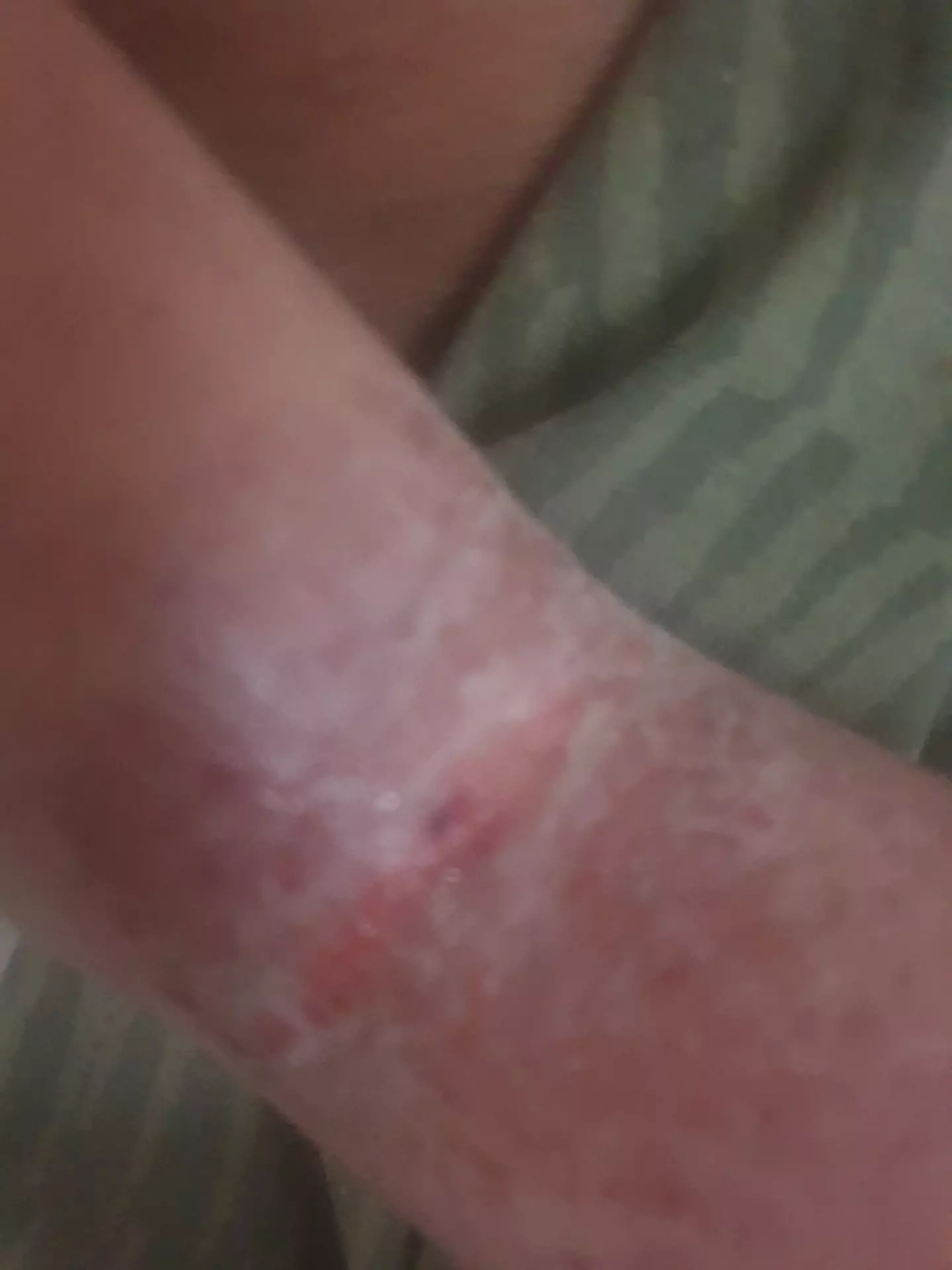
She suffers severely. (MEN Media)
Eczema often appears in the first few months of life and most children find it improves as they get older. But for some of those who experience it severely, there’s a possibility it will persist into adult life.
Eczema currently has no cure but avoiding trigger factors and having a clear eczema treatment plan helps manage symptoms for most kids.
However, M’Layah and her family are running out of options to ease it and are looking into light therapy, UV light to reduce inflammation.
“It’s impacting her mentally now,” Katherine added. “There’s not enough awareness. It’s been traumatic for her and it’s been upsetting.
“Watching your child in pain and there’s nothing you can do – I wake up and I don’t know where [the eczema] is going to be the next day. Is it going to be on her face?”

Warning: This article contains discussion of suicide which some readers may find distressing.
A Swiss voluntary assisted dying (VAD) association has apologised to the family of a British man who took his own life without them knowing.
Chemistry teacher Alastair Hamilton, 47, travelled to Basel, Switzerland last August to undergo the procedure at Pegasos, despite telling his mother that he was flying to Paris.

Alastair Hamilton, 47, visited a Swiss voluntary assisted dying (VAD) association last year. (ITV News)
His mum Judith Hamilton, 82, who waved goodbye to Alastair at the airport, told ITV News: “He put his arms around me, looked me straight in the eyes and he was smiling.
“And he said ‘love you, mum, love you lots, always have, always will no matter what’.”
After failing to return to the UK, his mum reported him as missing until bank records revealed that her son had paid £11,000 to Pegasos for ‘voluntary assisted death’ treatment.
The clinic accepted his online application form, which was seen by ITV News, where Alastair wrote about having an undiagnosed stomach condition, which he said caused him ‘pain, fatigue and discomfort’ and had ‘devastated his life’.
He also said that ‘there is no current, definitive medical explanation’ for his health condition and that his family weren’t aware that he had decided to take his own life.

Mum Judith Hamilton waved him off at the airport. (ITV News)
Following the approval of his application, it is believed that Alastair died in an office block next to an asphalt factory in Basel.
His brother Bradley, along with Judith, were taken to see the building by ITV News, with Judith saying: “It’s not the best place to be for your last view of earth.”
“It’s even more heart-breaking that someone could have been with him, but they didn’t tell us and he didn’t feel that [he could],” Bradley added.
His mother cried: “I keep saying to myself ‘oh Alastair’.”
With help from police and the British embassy, the clinic confirmed Alastair’s death and returned his ashes to his family in the post.
Pegasos apologised for not letting the family know in person and said in a statement to ITV: “As conveyed by Mr. Habegger during the meeting, we would like to tell the family once again that we are very sorry that our communication caused them further distress last year.
“We were not sure how to deal with the situation in terms of communication and legally and therefore did not act as we would today. We hope that our meeting helped them to understand better the decision and path of Alastair.

Judith was unaware of her son’s whereabouts. (ITV News)
“Pegasos has always respected the applicable Swiss law without exception and continues to do so… we always require reports from medical specialists. Only based on these reports, other documents and direct contact with the concerned person, a decision can be taken.
“We are conscious of our great responsibility. This is why, in those rare instances where we have reason to assume that no information has been provided to close family by the person seeking voluntary assisted death, we will abort the procedure on the spot.
“In 2022, the Swiss Medical Association revised its guidelines regarding assisted dying. It is important to understand that these guidelines are not legally binding for the associations but are policies for the medical professionals.
“Several organisations for assisted dying, including Exit, Dignitas and Pegasos, publicly spoke out against the revised guidelines, because they are putting at risk the self-determination of people planning a voluntary assisted death and the freedom of choice in Switzerland.”
According to the Swiss Criminal Code 1942, assisted suicide is permitted so long as the motive for doing so is not ‘selfish’.
LADbible has contacted Pegasos for additional comment.
If you’ve been affected by any of these issues and want to speak to someone in confidence, please don’t suffer alone. Call Samaritans for free on their anonymous 24-hour phone line on 116 123.
